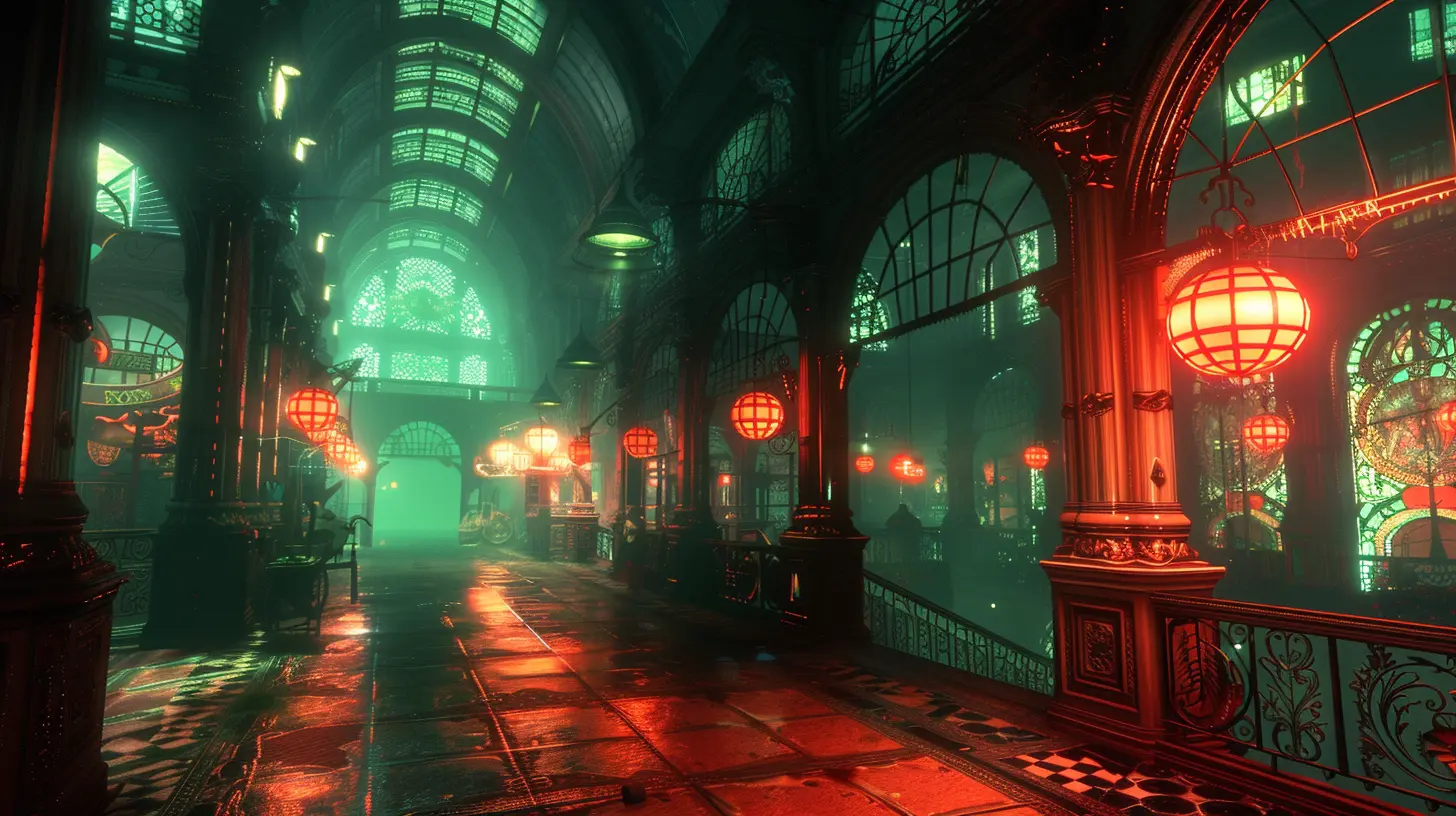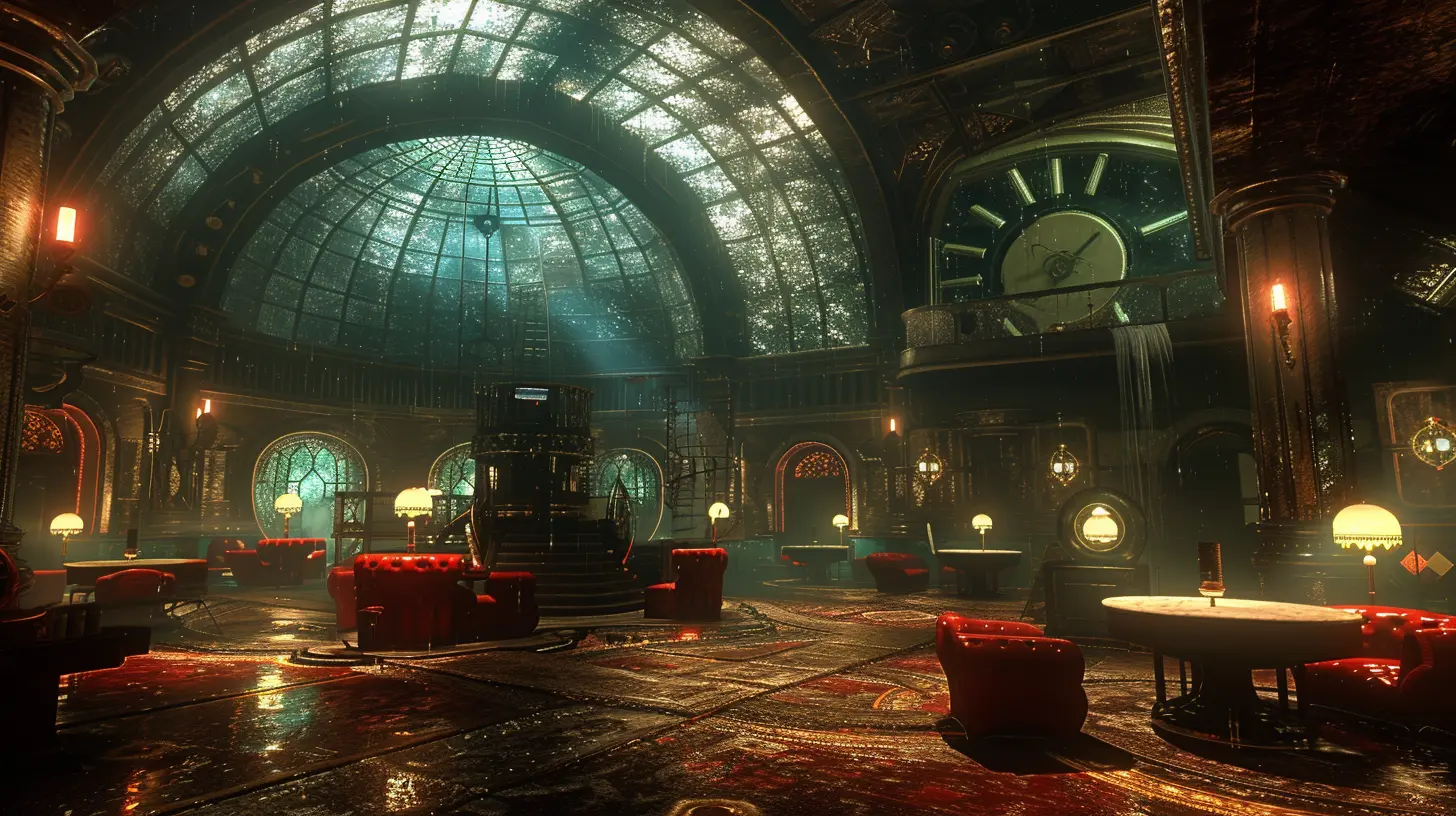Bioshock’s Plasmid Philosophy: Power, Control, and Madness
23 March 2025
When it comes to storytelling in video games, few titles dig as deeply into philosophical themes as Bioshock. Released in 2007, this iconic game isn’t just about surviving in the underwater dystopia of Rapture—no, it’s about challenging your beliefs, questioning morality, and wrestling with the consequences of unchecked human ambition. One of the game’s most fascinating mechanics—and arguably the thematic backbone of the series—is the plasmid system.
Plasmids aren’t just flashy gameplay mechanics that let you shoot fire or summon swarms of bees (though, let’s be real, that’s ridiculously cool). They're also a reflection of larger ideas about power, control, and the thin line between genius and madness. Let’s dive deep (pun absolutely intended) into the plasmid philosophy and dissect what these abilities mean beyond just gameplay.
What Are Plasmids, Anyway?
Before we get all philosophical, let’s get the basics out of the way. Plasmids are genetic modifications that grant you superhuman abilities. In the world of Rapture, they’re essentially the pinnacle of scientific achievement, made possible by a substance called ADAM, which is harvested from sea slugs. (Yes, sea slugs. Nature really went off with that one.)Want to shoot lightning from your fingertips? Throw people around with telekinesis? Or maybe hypnotize your enemies into fighting each other? There’s a plasmid for that. They’re like superpowers in a bottle—dangerous, addictive, and the embodiment of the Rapture philosophy: a world where “man is entitled to the sweat of his brow.” But, of course, nothing comes without a cost, and plasmids are no exception.
The Allure of Power: Why Plasmids Appeal to Everyone
Let’s be real—superpowers are tempting. If someone handed you the ability to incinerate a foe with a snap of your fingers, would you think twice? Probably not. Plasmids, at their core, symbolize humanity’s eternal obsession with power. They promise control, mastery, and the ability to bend the world to your will.In Rapture, plasmids were marketed as a way to “improve” yourself, making them the ultimate self-help tool. Don't like the weather? Use Winter Blast to flash-freeze it. Tired of carrying groceries? Telekinesis has you covered. They represent not just power, but convenience—a shortcut to the life you want.
But here's the kicker: that power comes at a price. Relying on plasmids too much doesn’t just harm your body (ADAM addiction is no joke), it chips away at your humanity. Plasmids blur the line between what makes you human and what turns you into a monster.
The Illusion of Control: Who’s Really in Charge?
Now, here’s where it gets really interesting. While plasmids give you control over lightning, fire, and even minds, they also quietly take control away from you. In Rapture, everyone thought they were masters of their own destiny. Andrew Ryan built the city specifically to escape control, whether from governments, religions, or any external authority. But plasmids? They’re the Trojan horse.The more you use plasmids, the more you depend on ADAM. The Splicers—those deranged enemies wandering the halls of Rapture—are the perfect cautionary tale. Once regular citizens, they became so addicted to ADAM that they completely lost themselves. Their pursuit of power left them broken, both mentally and physically.
And think about this: even as the player, aren’t you being controlled in a way? You think you’re choosing to inject that plasmid, to use that ability, but you’re guided by the circumstances and the limitations of the game world. (And don’t even get me started on that iconic twist: “Would you kindly?”)
It’s a chilling reminder that control is often an illusion. The pursuit of power can easily flip the script, leaving you as the one being controlled.
Madness as the Inevitable Endgame
Here’s the thing about power—it’s intoxicating. It takes you higher than you’ve ever been, but it also sets you up for a steep fall. Most residents of Rapture didn’t choose madness; it slowly crept in as the price of their ambitions. ADAM addiction, combined with the psychological toll of excessive plasmid use, turned them into Splicers—grotesque parodies of what they once were.Plasmids, in many ways, act as a metaphor for how power corrupts. You start small. A little Electro Bolt here, a touch of Incinerate there. But then you want more. And more. Before you know it, you’re swinging a wrench at anyone who gets close, driven as much by mania as by necessity.
But here’s the real kicker: it's not just the in-game characters who deal with this descent into madness. As a player, you start to feel it too. The more plasmids you acquire, the more you lean into them. Instead of relying on strategy or resourcefulness, you become drunk on your abilities. It’s a subtle, immersive way for the game to make you question your own relationship with power.
Plasmids and Moral Responsibility: Should You Use Them?
Now, let’s address the elephant in the room: are plasmids inherently bad? The knee-jerk answer might be "duh," but hold on for a second. At their core, plasmids are just tools. It’s the intent behind them that matters. If you’re using them to protect yourself or save others, does that make them any less morally ambiguous?Think about how plasmids affect your in-game decisions. They make you stronger, sure—but do they make you a better person? Using plasmids almost always comes with collateral damage. You might freeze an enemy solid to protect yourself, but you've also just condemned someone to a pretty horrific end. Does survival justify that level of brutality?
In the real world, we face similar moral quandaries with advancing technology. Just replace "plasmids" with AI, genetic editing, or even social media. The question remains the same: how far are we willing to go for power, and at what cost?
What Bioshock Wants Us to Take Away
At its heart, Bioshock isn’t just a game about plasmids or underwater chaos—it’s a cautionary tale. It holds a mirror up to our endless pursuit of progress and reminds us that every choice has consequences. The plasmids are a brilliant narrative device because they don’t just affect the world around you; they challenge you to think critically about your own actions.Would you use plasmids if they were real? Would you risk losing a part of yourself to gain new abilities? And even if you think you’d use them responsibly, how long would that last? These aren’t easy questions, but Bioshock never pretends they are.
The game forces you to confront uncomfortable truths about power, control, and the madness that often follows. It’s why Bioshock isn’t just a classic—it’s a philosophical masterpiece dressed up as a shooter.
Wrapping It Up
So, what does the plasmid philosophy ultimately tell us? It’s a warning, plain and simple. Power is alluring. Control is comforting. But both come with strings attached. In the end, plasmids are more than just a game mechanic—they’re a lens through which we can examine our own desires, flaws, and the lengths we’ll go to achieve greatness.Rapture fell because it was built on a foundation of selfish ambition and unchecked progress, and plasmids were the gasoline thrown on that already roaring fire. They represent the best and worst of human potential, showing us that even the most extraordinary abilities can lead to ruin if wielded without wisdom.
So next time you’re tempted to pick up that syringe of ADAM, ask yourself: “Would you kindly stop and think about where this road leads?
all images in this post were generated using AI tools
Category:
Lore And StorylinesAuthor:

Stephanie Abbott
Discussion
rate this article
5 comments
Drake Jordan
This article offers an insightful exploration of the complex themes in Bioshock, particularly the interplay between power and madness through Plasmids. It's fascinating how the game prompts players to reflect on morality and control. Thank you for shedding light on these profound philosophical elements that enrich the gameplay experience.
May 20, 2025 at 1:31 PM

Stephanie Abbott
Thank you for your thoughtful feedback! I'm glad you found the exploration of power and morality in Bioshock engaging. It’s a fascinating game that truly provokes deep reflection.
Ariana McFadden
Bioshock’s plasmids weave a haunting narrative of ambition and chaos. As players navigate Rapture's depths, the line between power and madness blurs, leaving us to question: what price are we willing to pay?
April 28, 2025 at 3:27 PM

Stephanie Abbott
Absolutely! Plasmids encapsulate the duality of human ambition—offering power while exposing the dangers of unchecked desire. Rapture's narrative serves as a cautionary tale about the cost of control.
Parker Sharp
Bioshock’s exploration of plasmids poignantly illustrates the duality of power—granting abilities while fostering control and madness, ultimately questioning the morality of human ambition and desire.
April 3, 2025 at 5:14 PM

Stephanie Abbott
Thank you for your insightful comment! Bioshock indeed masterfully captures the complex interplay between power and morality through its plasmids, showcasing the profound consequences of human ambition.
Bellamy McGehee
Ah yes, nothing says 'healthy life choices' quite like injecting yourself with genetic modifications and embracing madness. Who needs therapy when you have Plasmids? Truly a model for modern living!
April 2, 2025 at 4:35 AM

Stephanie Abbott
Thank you for your comment! It’s interesting to consider how Plasmids reflect our complex relationship with power and self-improvement.
Thistle Nelson
Plasmids: because who needs sanity when you can shoot bees from your fingertips?
March 26, 2025 at 4:25 PM

Stephanie Abbott
Exactly! Plasmids transform power dynamics, blurring the line between control and chaos—much like the absurdity of wielding bees!




